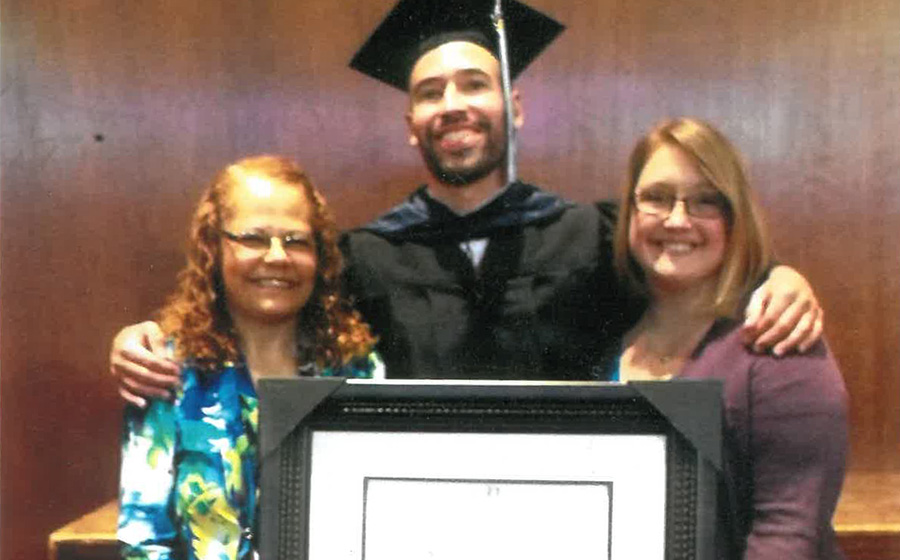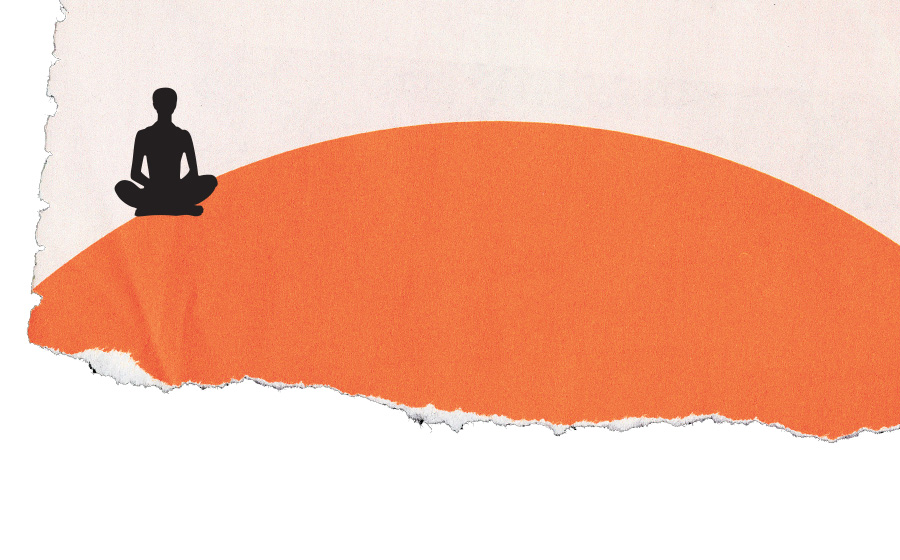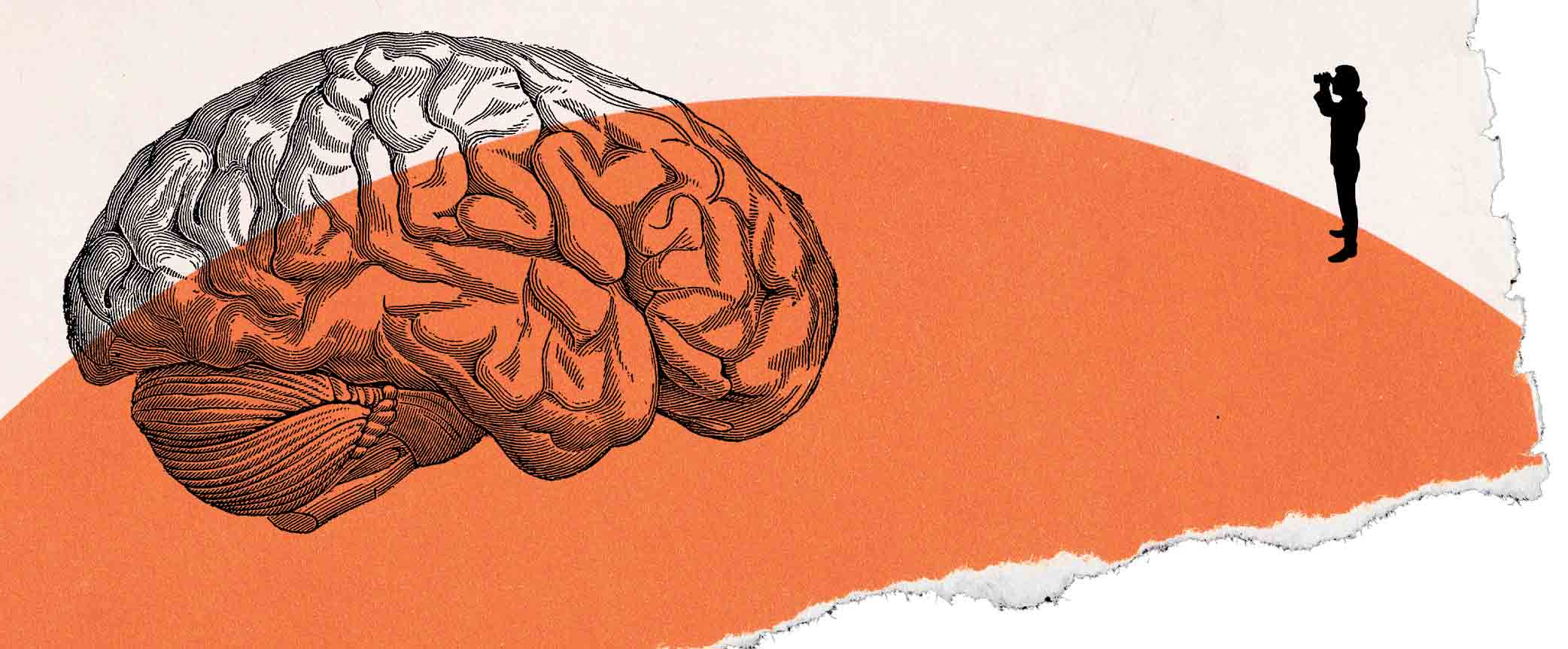
Living in the present is probably impossible
It’s extraordinarily difficult for a human to live in the present. I recognize this is the goal of many spiritual practices, but what makes our brains special is our capacity to unhook from the present and transport to different points in time. We spend time living in simulated futures, thinking, for example, “What will happen if I say this?” We also live in the past, reliving moments that no longer exist. And we spend time in the world of counterfactuals, questioning, “Where would I be if I had done that instead of this?” We constantly travel these other roads in time. It’s a big part of what makes us successful as a species. If you can play out possibilities, future and past, then you can simulate the effects of a new hunting strategy, an improved way to plant crops, or a novel social maneuver. Instead of attempting everything in the real world, you can test it in the dark safety of your skull. As the philosopher Karl Popper said, this capacity “allows your hypotheses to die in your stead.” Children don’t have the same prospective view as adults. As adults, we’ve had a great deal of experience, so we have a rich notion of the future and past. Children don’t have the same experience and long timescale to draw on, so they live closer to the moment. I don’t mean this in a spiritual way; I simply mean they don’t yet have the capacity to think about consequences or options, or richly analyze past outcomes. Instead they experience what is happening right now. As they learn more, they lay down an increasingly wide lawn of the future and the past, eventually growing into all of the joys and sorrows of adulthood.
How do you live more spiritually in the present, given that you have a brain that is always dancing around in time? I don’t know if it’s possible.

We live behind the times.
There is no such thing as now. We live in the past by about half a second. Why? Because the brain is always collecting information from all the senses: from your eyes and ears to your fingertips and toes. These pathways process information at different speeds, so information comes streaming into different parts of your brain at slightly different times. The job of your consciousness is to collect the information, stitch it together, and serve a story of what just happened. It takes time to put everything together, and as a result, we are always living in the past. By the time you’ve processed all the information about a moment, the moment is long gone. Your conscious perception of the world is always lagging, so your experience of the moment right now is actually a delayed reality. It is similar to a live TV show like Saturday Night Live, which is not truly live but slightly delayed in case someone cusses, an actor falls, or a clothing mishap occurs. It mirrors our perceptual experience: we are always living in the past.
The distance you live in the past can change. When you are a child, it takes a certain amount of time to send signals out to your limbs and have sensory feedback return to the brain. As you grow and your body gets larger, the round-trip time for signals is longer. Adults therefore live slightly further in the past than children. For that matter, I suspect that tall people live further in the past than short people.
The brain recalibrates the now.
The brain constantly recalibrates its notion of now. Imagine you are in a dark place and you step into the sunlight. It now takes a different amount of time for the cells in the back of the eye to send signals to the brain. But the bright light has no effect on the amount of time your inner ear requires to send signals to the brain. Your sensory systems are always adjusting in relation to one another to figure out correlations of events in the outside world.
In my lab I showed that people with schizophrenia don’t appropriately recalibrate their timing. Imagine that you slightly mistime the commands you send to your limbs and the information you receive through your senses. This mistiming would change your interpretation of the world. Think of how you continuously generate an internal voice and listen to that voice””if you reversed that timing, even by a few milliseconds, it would become an auditory hallucination. You would attribute the voice to someone else, because you would think you heard it before saying it. A common symptom of schizophrenia is credit misattribution, which involves not taking credit for your own actions, saying, “That wasn’t me. I didn’t do that.” The same issue is at hand; taking credit is fundamentally a temporal judgment””as in, “I made an action, and I got the proper feedback.” If your timing is miscalibrated, then credit misattribution is an expected outcome. With a number of experiments, I showed that the cognitive symptoms of schizophrenia are related to a miscalibration of timing.

Time is not a river that flows the same for all.
Einstein demonstrated that time is relative. As an example, imagine traveling to outer space at an incredibly high speed, say half the speed of light. You have an identical twin who remains back on earth. When you return to this planet, you will be a bit younger than your sibling, because you have been travelling at a much faster speed, so time has ticked forward for you more slowly. I think neuroscience will make relativity even stranger. For seventeen years I have studied what I call neurorelativity, the concept that you and I can witness the same event but have totally different interpretations about what happened (how long it took, what happened first, etc.), depending on what is occurring in our brains. If you are bored or excited, or primed differently or pay attention differently, your perception of time will be distinct from mine.

Time moves in slo-mo.
Physical time runs at a fixed speed here on earth, but depending on how you lay down memory, events can seem to have taken a longer or shorter time. In a series of experiments, I showed that in a life-threatening situation you lay down dense memories, so when you look back on the event, you remember it taking a long time. In contrast, if you are doing something boring, like sitting on an intercontinental flight, you lay down few new memories. As a result, when you try to recall the details of the flight, it seems to have disappeared rapidly.
Fascinatingly, time is viewed differently if you’re looking at it backward or forward. I’ve been talking so far about the retrospective view of time, in which rich memories equate to an event having seemed to take a long time. But prospectively””that is, looking ahead””the situation is different. While you are sitting on a boring flight, it seems to take forever, because you keep consulting your watch, checking the time to determine when the flight will be over. It’s a watched pot that never boils. Conversely, when you’re having a great time running around with old friends, you never consult your watch, and you’re surprised when the day is over. Time has flown.
I started studying time because when I was eight-years old I fell off the roof of a house. The fall seemed to have taken a long time. In high school I took a physics class and calculated that the whole event lasted 0.6 seconds. I couldn’t understand how the fall was so rapid yet seemed to have taken so long: I had clear thoughts during the fall. I became a neuroscientist and started investigating this phenomenon. I put the word out that I was studying this issue, and I received dozens of emails from people who had been in car accidents or experienced other traumatic events. They also said time had moved in slow motion.
I created a scientific test, putting people in a terrifying situation and measuring whether they could actually perceive time in slow motion. Specifically, I dropped them from a tower a hundred-and-fifty feet high, backward, in free fall. A net below caught them as they fell seventy miles per hour. The fall is extraordinarily scary; I did it myself several times in preparation for the experiment. I measured several things about their perception of time during and after the fall. Long story short: it is all about memory. The people falling were no faster in perceiving information than someone on the ground. But because the event was scary, their brains laid down more memories. When their brains later read out denser memories, they presumed the event must have taken longer, and must have proceeded in slow motion.
In this way, time and memory are always intertwined, and it is impossible to study how long something seemed to have lasted without understanding how much memory was laid down. We have memory to take notes about what is important. When you are in a life-threatening situation, your brain captures as much data as possible. In contrast, when you are strolling down the sidewalk on your way to work, your brain is not writing down a lot of detail. That is why traumatic events seem, retrospectively, to have lasted a long time.
About the Contributor
David Eagleman is a neuroscientist and New York Times bestselling author of Incognito: The Secret Lives of the Brain and Sum: Tales from the Afterlives. He is the writer and host of the Emmy-nominated PBS television series The Brain. Eagleman is an adjunct professor at Stanford University, a Guggenheim fellow, and the director of the Center for Science and Law.


